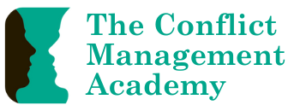As one of the reviewers said, this book will, in thirty year’s time remain a – possibly the – classic treatment of power in the English language. I revisited this book when preparing some advanced training about power in conflict. It’s one of the best overviews of power that I have come across – it’s quite theoretical but less dense than trying to plow through Foucault!
Lukes proposes what he calls a “three dimensional” view of power. This view includes the dimension of being able to get the outcomes you want, despite the opposition of others. The second dimension is when someone can limit the opportunities of opponents to participate in decision making processes. The third dimension of power is the one he says we frequently overlook, as it’s the least accessible to observation, but is the one that is often most effective. This dimension is the power to prevent people, to whatever degree, from having grievances by shaping their perceptions, cognitions and preferences in such a way that they accept their role in the existing order of things.
Lukes argues that discussions about power matter because “how much power you see in the social world and where you locate it depends on how you conceive of it, and these disagreements are in part moral and political, and inescapably so”. He also explains that “power is real and effective in a remarkable variety of ways, some of them indirect and some hidden, and it is at its most effective when least accessible to observation, to actors and observers alike”.
What I liked about this book was the way it unpacked the concept of power, without simply listing examples of types of power (which is what I often see in conflict-related textbooks discussing the topic). The book is quite theoretical, and focuses on social and political uses of power, but the basic concepts can be applied to conflict resolution practice.
If you are a conflict resolution practitioner serious about understanding power and how it works in conflict, this book is an essential foundation.

